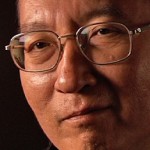Nobel Prize Puts China's Leaders to Shame
 Today, Liu Xiaobo was awarded the Nobel Peace Prize. But the calls from human rights activists for China to release him have fallen on deaf ears.
Today, Liu Xiaobo was awarded the Nobel Peace Prize. But the calls from human rights activists for China to release him have fallen on deaf ears.
Today, the 2010 Nobel Peace Prize will be awarded to Chinese dissident and peace activist Liu Xiaobo. But Liu’s seat at the ceremony will be empty because the Chinese government has imprisoned him on trumped-up charges and has forbidden even his family to attend the ceremony to receive the award on his behalf. Also empty will be 18 seats from embassies around the world who have pitifully decided not to attend the ceremony in a show of support for China.
In awarding Liu the Prize for 2010, the Nobel Committee said it was in recognition of his long and non-violent struggle for fundamental human rights in China. The Committee noted that:
The campaign to establish universal human rights also in China is being waged by many Chinese, both in China itself and abroad. Through the severe punishment meted out to him, Liu has become the foremost symbol of this wide-ranging struggle for human rights in China.
Liu is currently serving the first year of an 11 year prison sentence for supposedly spreading a message to ‘subvert the country and authority’. His crime you ask? Co-authoring and then circulating on the Internet a pro-democracy manifesto affirming the importance of freedom, human rights and equality as “universal values shared by all humankind” and calling for direct elections, judicial independence, democracy and equality. How heinous of him! Liu has served three prior jail sentences in China for similar charges over the past twenty years.
Many leaders from the United States and Europe and human rights activists from around the world have called for Liu’s immediate release. However the calls to China have, predictably, fallen on deaf ears.
Equally predictable have been efforts by the Chinese government to exert strong pressure on countries to boycott the Oslo ceremony, after it was incensed over the award to the jailed dissident.
Of the countries that have disgracefully acquiesced to Chinese pressure and declined to attend this year's ceremony, the list hardly reads as your democratic all-star team. It includes Russia, Kazakhstan, Colombia, Tunisia, Saudi Arabia, Pakistan, Serbia, Iraq, Iran, Vietnam, Afghanistan, Venezuela, the Philippines, Egypt, Sudan, Ukraine, Cuba and Morocco. Six of these countries even shamefully occupy a seat on the UN Human Rights Council.
In the absence of Liu and his family, there will instead be an empty chair and a portrait of Liu on the podium.
In an open letter in The Washington Post to Chinese President Hu Jintao, Yang Jianli, a former political prisoner in China, current Harvard fellow and the liaison to the Nobel Peace Prize Committee on behalf of Liu's wife, writes that:
a vacant seat on the stage will speak of weakness and fear. It will raise the specter of a government that clings to the past and is unwilling or unable to accept change based on the realities of life and the desires of its people.
It is perhaps no coincidence that on the same day the Nobel Peace Prize is awarded, the world also celebrates International Human Rights Day, honoring the adoption of the Universal Declaration of Human Rights on December 10th, 1948 as the first global enunciation of human rights.
If there is any bright light from Liu’s empty seat (and those of the 19 countries), it is that their absence will shine a glaring light on China’s abysmal human rights record. Only question is – will the world pay attention and do something about it?